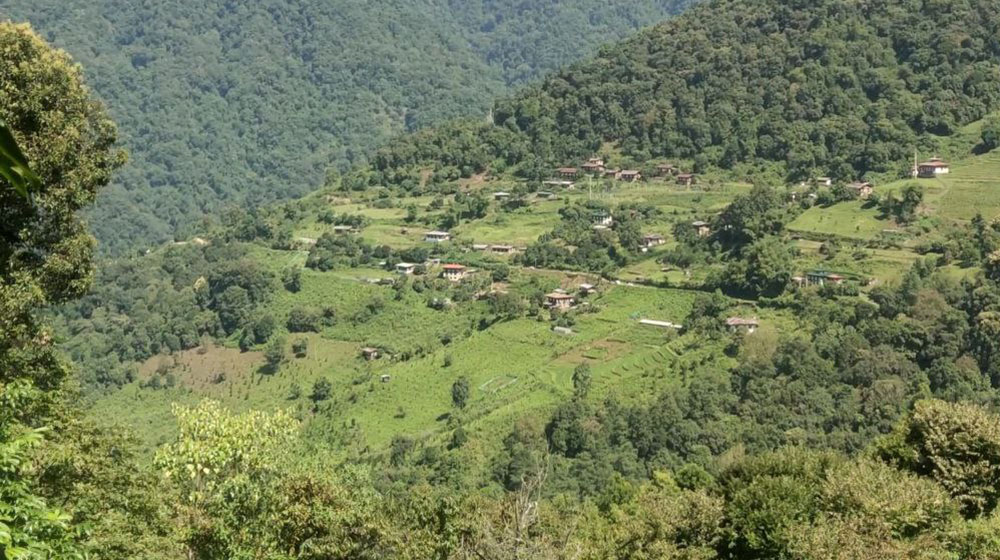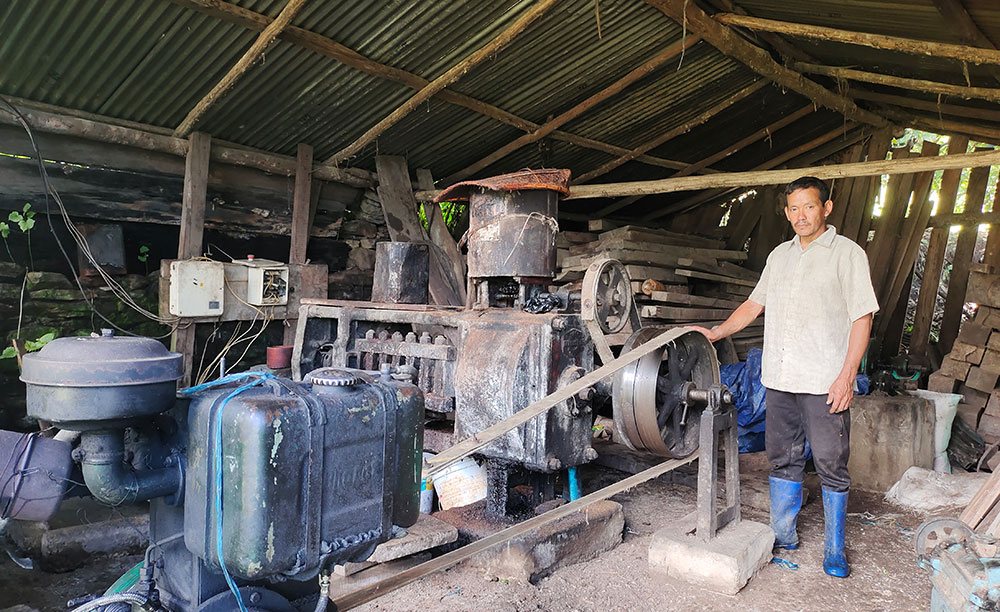Lhakpa Quendren
Zhemgang- As the price of imported oil continues to rise, farmers in Zhemgang are returning to mustard oil extraction. This practice had once disappeared as cheaper imported oil became widely available.
The only oil extraction mill in Kikhar village, Nangkor gewog, Zhemgang, was initially used only by locals within the gewog. However, it is suddenly seeing farmers from neighbouring gewogs of Shingkhar, Bardo, and Trong bring their mustard seeds to the mill.

Kikhar village

Chimi currently runs the oil mill in Kikhar
A resident of Kikhar, 51, set up the mill in 2005. Three community members, including Chimi, acquired this mill through a cost-sharing scheme with a 50 percent government subsidy.
He said that the oil extraction unit produces around 12 to 30 tins of oil on most days. They charge between Nu 100 and Nu 160 a tin for extraction, depending on the market prices. The operator is paid Nu 500 per day.
“While locally produced mustard oil is nutritious, some found it laborious. As imported oil prices continue to rise, more people are extracting mustard oil for self-consumption,” Chimi said.
Given that more people engage in mustard oil extraction, Chimi says that the unit has seen an increasing number of people seeking its services this year. He says that establishing an oil extraction unit in each gewog in Zhemgang would greatly benefit communities. “Instead of relying on imports, the government could promote mustard cultivation for extensive oil extraction,” he added.
While locals currently extract mustard oil for self-consumption, Zhemgang has the potential to go commercial. The locals cultivate two varieties of mustard—Payka Serb (yellow mustard seeds) and Payka Nab (black mustard seeds).
Most farmers in Zhemgang currently cultivate wheat and barley, but some have started growing mustard because of the availability of the extraction mill, according to residents.
Another farmer, Thinley Namgay, said that encouraging mustard oil production will contribute to achieving food self-sufficiency goals and ensure sustainability during emergencies. However, he said, inaccessibility to markets remains the major challenge for local products.


